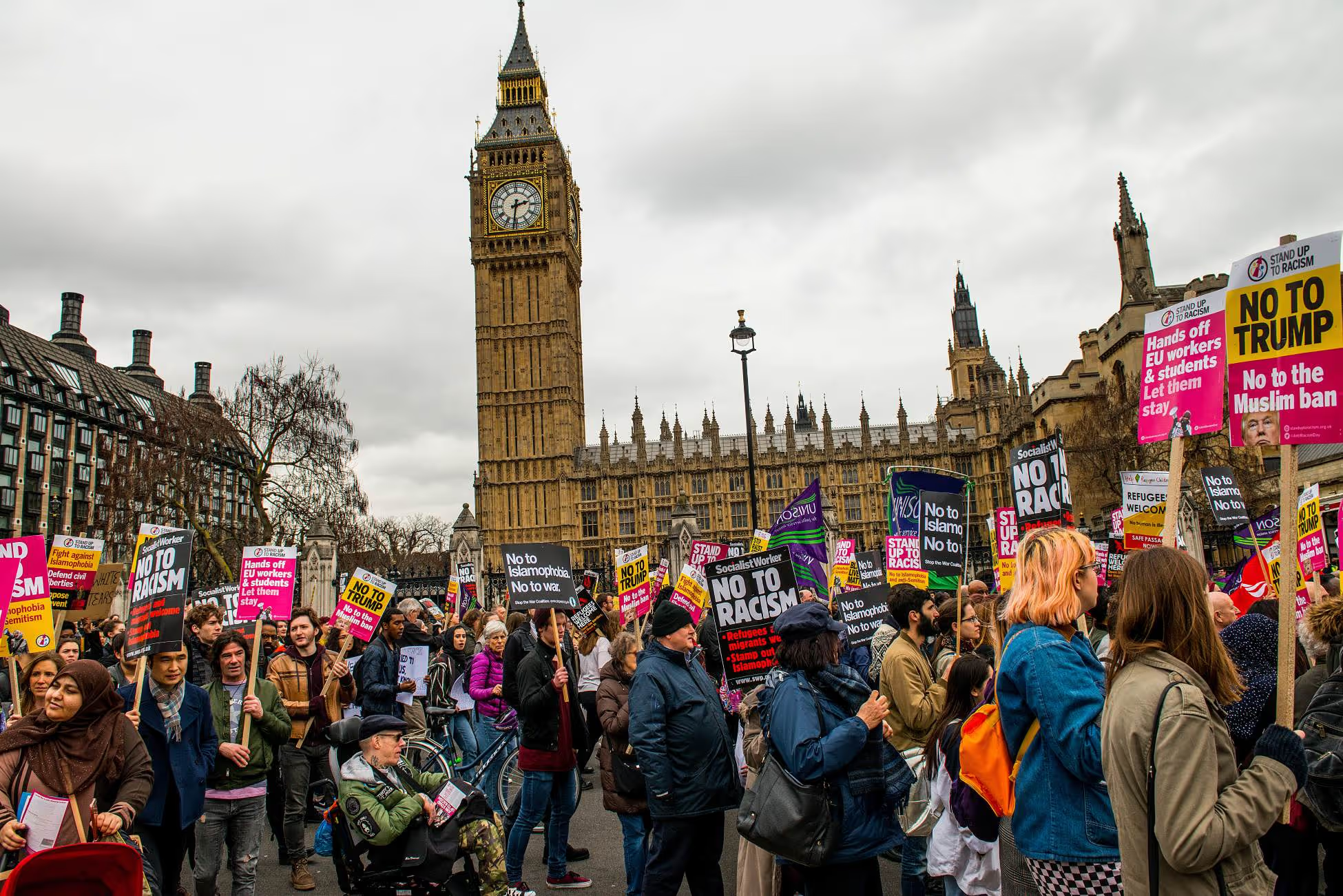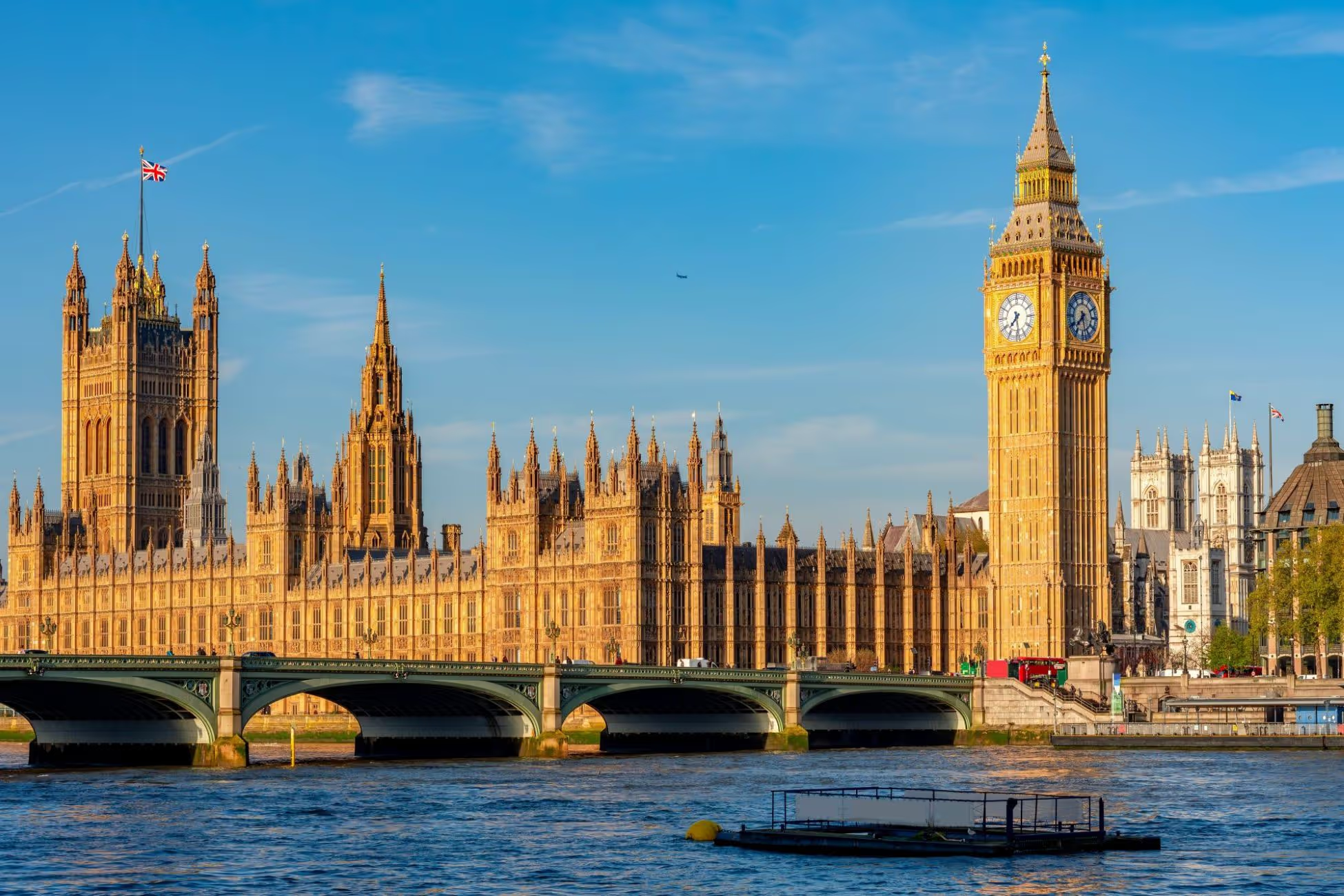

The State We’re in: Addressing Threats & Challenges to the Rule of Law
This report looks at the importance of the Rule of Law as a legal concept fundamental to the proper functioning of our society, and at the various ways it has been eroded in recent years, both now and prior to the pandemic.
The rule of law is not an idealistic or abstract concept without any real consequences for the general public. It is the notion that all are equal before the law – both individuals and the State.
However, the stark conclusion of the report is that this, and any future Government, must wake up to the country’s worrying trajectory we are on and start to reinstate the UK’s longstanding adherence to the Rule of Law, ensuring it is understood, respected and maintained if we want to preserve our reputation as a shining light for democracy around the world.
What is the rule of law and why does it matter?
The rule of law is a set of principles, fundamental to our constitution, that seeks to ensure that everyone, including the State itself, is bound by, and entitled to the benefit of, publicly-made laws administered in the courts. It is vital, both for the public at large, who expect the State to behave in a responsible manner and for the marginalised, to ensure due respect for their rights too.
The stability created by our longstanding rule of law has wide-reaching benefits, from providing a strong system for commerce, entrepreneurship, philanthropy and democracy to thrive, to strengthening international relations.
Report findings
The report finds that over the past decade and particularly in the last five years, the process of lawmaking has become less transparent, less accountable, less inclusive, and less democratic. For example:
Public consultations, valuable for ensuring the Government considers a wide range of views and evidence, are too often poorly conducted, if at all. This is clear from the Illegal Migration Act 2023, which was not subject to any public consultation or pre-legislative scrutiny despite having profound implications for the UK’s asylum system and human rights adherence. Equally, the Bill of Rights Bill consultation, which received 12,000 responses, with up to 90% of respondents opposed to key reforms, was completely sidelined.
There has been a growing legislative disregard for human rights. The health of the UK’s civic space has been downgraded from ‘narrowed’ to ‘obstructed’ by the Civicus Monitor, a platform that monitors the state of civil society freedoms globally. Laws like the Public Order Act 2023 could have a chilling effect on our rights to freedom of thought, expression, and peaceful assembly.
‘Henry VIII’ powers, which allow ministers to amend or repeal laws through secondary legislation with little parliamentary oversight or scrutiny, have become more prevalent, adversely affecting the principle of legal certainty. This is evident in the European Union (Withdrawal) Act 2018, in which power is bounded by whether the minister thinks its exercise is ‘appropriate’, rather than it being objectively ‘necessary’.
Cuts to legal aid have decimated universal access to justice and victims, witnesses, small businesses are left waiting months if not years for a trial. This has been compounded by the ongoing courts backlog crisis, where, as of March 2023, over 340,000 cases are outstanding in the Magistrates’ courts and over 62,000 in the Crown Court. Annual public expenditure on legal aid dropped by a quarter between 2009 and March 2022, resulting in ‘legal aid deserts’, with no access to legal advice at all.
Significant systemic inequalities still need to be addressed in our society. Yet our approaches to tackling inequality and discrimination are unfit for purpose. The budget of the Equality and Human Rights Commission has plummeted from a peak of £70.3 million in 2007 to £17.1m today. Moreover, policymakers do not, as a matter of course, conduct Equality Impact Assessments, as seen most recently where the Illegal Migration Act 2023 lacked such an assessment until after its passage through the House of Commons. Often discrimination goes entirely undetected due to data being uncollected, unpublished, or of poor quality. In modern slavery cases, for instance, no data is regularly researched or published in relation to complainant ethnicity.
Recommendations
- The Government must be prepared to take bold action, including repealing some of the more problematic legislation passed since 2019. While not exhaustive, this recommendation concerns at a minimum the Covert Human Intelligence Sources (Criminal Conduct) Act 2021, Parts 3 (Public Order) and 4 (Unauthorised Encampments) of the Police, Crime, Sentencing and Courts Act 2022, the Public Order Act 2023, and the Illegal Migration Act 2023. While covering a range of important areas of public policy, it is clear that rights-based considerations were neglected or totally ignored. This is not to say that the status-quo prior to the introduction of the Acts was satisfactory, but rather that their impact represents a significant deterioration in protections for the groups concerned.We affirm recommendations by several House of Lords committees and the Bingham Centre for the Rule of Law, “skeleton legislation should be reserved for the most exceptional cases”, and where it is sought, the Government should fully explain and justify why such a Bill or clause is necessary. Broad delegated powers should not be included within a Bill merely to paper over poor policy development at the primary legislation stage.
- The Government must reduce its reliance on the use of ‘Henry VIII’ powers. If such powers are sought, they must be tightly drafted to ensure that they are used only when it is objectively necessary, they cannot be justified “solely by the need for speed and flexibility”.
- The Government should strengthen public ownership of human rights. The trend of human-rights-diminishing legislation suggests the Government is confident that the public does not value human rights. Whereas, in fact, 73% of UK adults believe that rights, laws, and protections must apply to everybody equally.
- The Government must cease to use inflammatory language that disparages the legal profession. Both lawyers and the judiciary play a crucial role in supporting the rule of law and, in particular, facilitating access to justice. Hostile comments, such as referring to an “unelected judiciary” or claiming lawyers are “abetting the work of criminal gangs” undermines the public’s perception of the judiciary’s independence, as well as the motives of lawyers.
- The Government must prioritise tackling inequalities, for example through making Equality Impact Assessments mandatory part of the legislative process. This will help legislators to ensure they comply with their Public Sector Equality Duty, increase transparency, and provide a clear rational for the Government’s position and decision-making in the event of judicial review proceedings.
Read and download the full report
Click here to read and download the full report.
JUSTICE is grateful to Clifford Chance LLP and Travers Smith LLP for their pro bono research in support of the report, as well as JRSST Charitable Trust and the Legal Education Foundation for their important contribution to this work.





